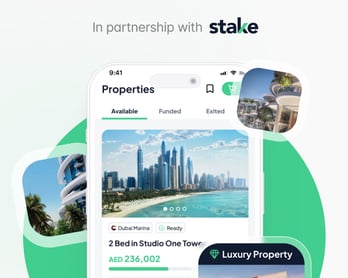Can blockchain help us reinvent the way we build online communities?
Today, we welcome Adi Sideman, co-founder and CEO of Props Project, and he’s determined to prove that it can.
For over 20 years, Adi has successfully built communities and large consumer products at scale. He’s co-founded several companies, including TargetSpot, Ksolo Karaoke, and Oddcast, and he’s well known for his work at YouNow, the live streaming service he helped grow to over 120 million user sessions per month.
Bringing people together has proven to be a deeply gratifying experience for Adi. Still, he was inspired to look beyond that and search for new ways in which communities could provide value to their members. These intentions inspired Props, a loyalty token that allows people all over the world to earn benefits, money, and a stake in the network they help grow.
Four years ago, Props Project ran a funding campaign on Republic, reaching their maximum goal of $1,070,000 in just several hours. Since then, they’ve raised an additional $21 million in funding, expanded their brand globally, and become a valued blockchain community member.
In this episode, Adi joins us to talk about his experiences with Props and share some of the most important lessons he’s learned along the way. We also discuss innovations in blockchain technology and their implications for the future of community building.
Check out Linen
a DeFi investing app that lets you
earn shares in community-owned projects
Bringing together social and financial capital
Communities are powered by their members. Platforms are the setting, but the people are the ones that are creating content and driving them forward.
Some networks have shared their financial success with their members in the past, but Adi felt the opportunity was never fully explored. He wondered if there was a way to provide meaningful value for users—not just a commission, a revenue share, or a cut of the activity, but something with a potential financial upside.
Props Project relies on blockchain technology to allow people to gather virtual digital assets that are transferable across various platforms. Each participating community has its own system for rewarding users with Props, which are tokens that unlock a unique set of benefits for the user on each platform.
Props are also a form of virtual currency, which can be sold and bought through crypto public exchanges such as OKEx, KuCoin, and Gate.io.
In allowing social and financial capital to come together, Props Project has created a system for networks to partner up with their members and adequately reward them for their contributions.
How are props changing the way platforms build communities?
Props work best for companies that have a direct relationship with their members, such as digital marketplaces. If you know who your people are and when they’re coming back, then you’re most likely a great fit.
So far, Props Project has successful partnerships with platforms such as YouNow, Camfrog, and Listia. More companies like Roomi, Dating.com, and SuperWorld are in the process of joining.
Each of these communities offers in-app benefits via Props to make the user experience more profitable. These benefits are a pretty massive incentive for users, which is why lots of people are choosing to hold on to the tokens. In addition to their immediate value within a network, the tokens can also appreciate in value as the demand for Props grows.
Props and the NFT space
Props Project recently announced their first partner in the non-fungible token (NFT) space. They’re called SuperWorld, and they allow users to buy and sell virtual real estate.
Within their platform, they have created a marketplace for NFTs to engage people in the creative economy. SuperWorld chose Props as their official community loyalty token, and they will be rewarding their users for contributing to the growth of their network.
What will the future of growing communities look like?
Adi is a firm believer that finance plays a crucial role in leading the world. While software innovations have enabled many opportunities, the direction of growth is determined by where people are placing their money.
The advancements in blockchain and other technologies have enabled greater financial participation for the masses. Companies that give back to their user community and reward them for contributions will gain an edge that their competition can’t afford to ignore.
That is why Adi expects this trend to continue to a point where everyone will participate. He also predicts bringing profit to the people will be one of the main side effects.
Additional resources
To keep in the loop for the latest developments in crowdfund investing, make sure to follow this podcast and listen in every week. Leave a rating and a review, and let’s bring profit back to the people together.
Ready to start investing in your future?
Head over to Republic.co
and find a startup you’re passionate about
Legal Disclaimer: The Securities and Exchange Commission (SEC) has qualified the offering statement that we have filed with the SEC. The information in that offering statement is more complete than the information we are providing now, and could differ in important ways. You must read the documents filed with the SEC before investing. The offering is being made only by means of its offering statement. This document shall not constitute an offer to sell or the solicitation of an offer to buy, nor shall there be any sale of these securities in any state or jurisdiction in which such offer, solicitation or sale would be unlawful prior to registration or qualification under the securities laws of any such state or jurisdiction. An indication of interest involves no obligation or commitment of any kind. Any person interested in investing in any offering of Props Tokens should review our disclosures and the publicly filed offering statement and the final offering circular that is part of that offering statement at http://offeringcircular.propsproject.com. YouNow is not registered, licensed or supervised as a broker dealer or investment adviser by the Securities and Exchange Commission (SEC), the Financial Industry Regulatory Authority (FINRA) or any other financial regulatory authority or licensed to provide any financial advice or services.
Blockchain community with the Props Token


 Oops! We couldn’t find any results...
Oops! We couldn’t find any results...







